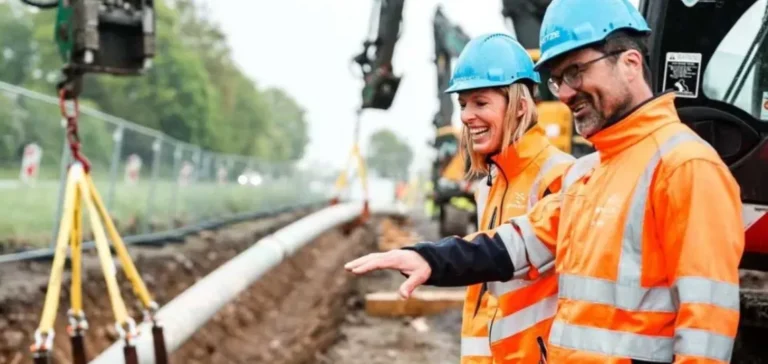The German energy company Badenova has confirmed its long-term strategic investment plan aimed at modernizing its energy infrastructure, notably by converting part of its natural gas facilities to hydrogen as well as expanding its renewable energy networks. The announced amounts are part of a global plan totalling EUR 4 billion ($4.64 billion), progressively allocated until 2050.
Hydrogen and heat at the heart of investments
The flagship project of this programme is called H2@Hochrhein, a pipeline specifically designed to transport hydrogen in the Upper Rhine region. Additionally, Badenova is investing in adapting its existing gas networks to enable hydrogen distribution, as well as developing renewable energy production capacities and optimizing its heating networks.
Financially, Badenova forecasts an immediate investment of $232 million starting next year, up from $166.4 million invested during the past year. The year before, the company invested around $141.8 million, illustrating a steady upward trend in expenditures linked to transforming its infrastructure.
Financial results exceed expectations
For fiscal year 2024, Badenova recorded net profits of $66.5 million, marking a slight decrease compared to $66.7 million recorded the previous year. However, this result exceeded expectations by $8.5 million. From these profits, $58 million will be redistributed to the group’s 98 municipal shareholders, with the remainder retained to strengthen internal funds.
Revenues recorded by Badenova decreased in 2024 to $1.68 billion, compared to $1.97 billion in 2023. The company primarily attributes this decline to reduced electricity and gas procurement costs, as well as milder weather, weakened energy demand, and increased volatility in international markets.
Responding to German national objectives
According to Badenova, these investments will enable the company to meet the energy and climate ambitions stated by the German government. The objective notably includes ensuring infrastructure robustness amidst a profound transformation in the national and international energy landscape.
As part of its financial announcement, the company outlined the broad strokes of its future commitments, clearly revealing its operational priorities for the coming decades.






















